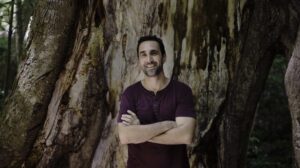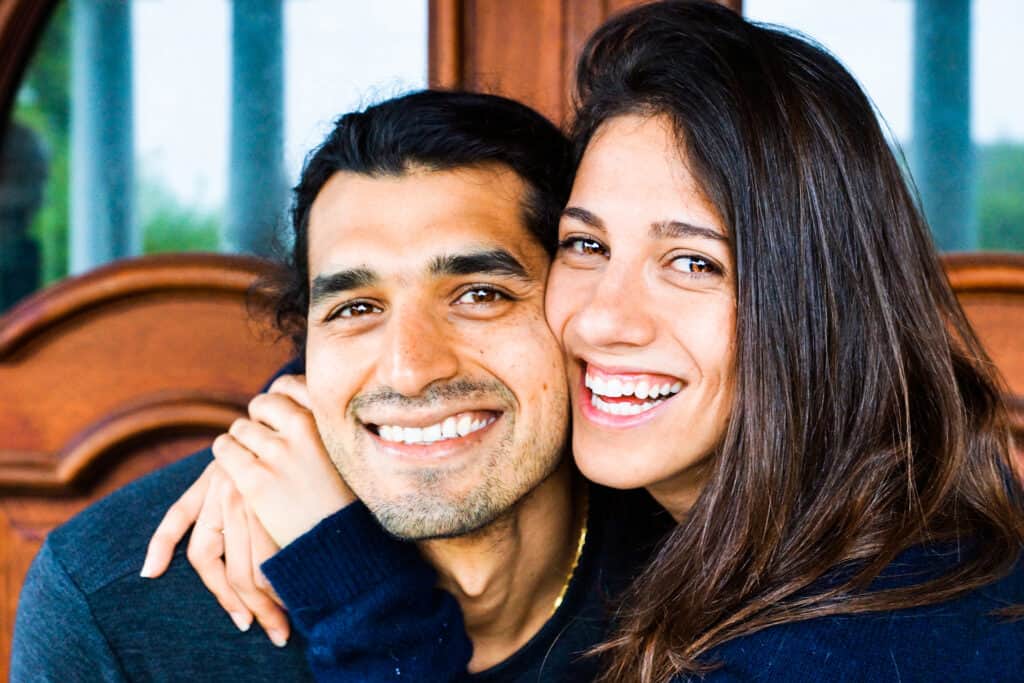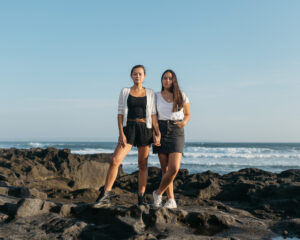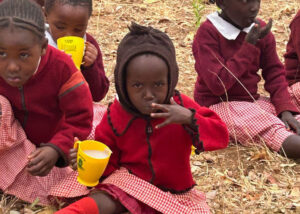
Masaya Co — Sustainable Furniture from Seed to Seat
MasayaCo is a sustainable furniture company on a mission to combat climate change through reforestation & sustainable design.
USA
MOOD OF LIVING August 29, 2017

Mood of Living: What were you both doing before you founded the Recipe Hunters?
Anthony Morano: We both went to Emory University. After graduating, I worked at JP Morgan and then started a healthcare technology company in Costa Rica, without knowing any Spanish. We connected people to doctors, bringing healthcare technology to Costa Rica through the private market. I was passionate about being an entrepreneur but I was considering what I wanted to do, and it wasn’t in health and technology. I had a heart-to-heart with my business partner. He said, ‘Man, you’re a brother to me, whatever you want to do is good for me.’ And that made the decision for me.
Leila Elamine: I studied psychology and was in a pre-medical program at Harvard. Working in medical research, I was greatly impacted by working in a cancer center. I realized the gravity of death as I worked with teenagers whose lives were being cut short. I had a bit of an existential crisis at 26 because I knew I wanted to truly live, pursuing my inspiration and passion. So I moved to Chicago, worked at a cheese shop, volunteered on a cheese farm in Wisconsin and received a scholarship to the School of the Art Institute of Chicago.
AM: That was when our worlds collided. I was in Chicago trying to bring our healthcare company to the States. Looking for an opportunity to live our passion, we took a few months in Chicago to explore different ideas while Leila was working at the cheese shop and I was at the nearby ice cream shop. We loved food and had grown up in families where food was a definite focus. That’s what it came down to in our new jobs, our love for food.
MoL: What are The Recipe Hunters? What was the inspiration behind getting started?
AM: In Chicago, we were exploring the food around us. We’d go to the Chinese market and ask how they would cook it. We’d be invited back to their home to cook or we’d go to restaurants and learn from others. Quickly, we realized we wanted to discover traditional foods in other countries and share more stories like those we were discovering. We knew we could volunteer places in exchange for room and board, through websites like WorkAway. We just wanted to buy the ticket, get going and see if it worked! We both wanted to learn languages, explore different cultures, learn about food and understand farming and agriculture. That was really important to us, to learn about sustainable life on a farm that we want to live on and support. Though Leila had received a scholarship to the Art Institute she wanted to develop her photography on her own. We just went, searching for people who cook traditional foods with love, and got to it.
LE: We thought, why don’t we do this and see if it works? We wanted to travel the world so just got the ticket, a one-way flight. I remember I went over to the ice cream shop one break and Anthony had found a ticket to Norway for $200, and we booked it right there on the stool.
AM: We didn’t have a set goal or a five-year plan, we just went to Norway and volunteered on a dairy farm. It was amazing because we basically started out volunteering on a farm and we realized it was the perfect way to become integrated into the local culture. We didn’t even know how long it was going to last but we did it for eight months. The concept hadn’t fully developed, we just wanted to show food cooked with love. That eight months of traveling took us to Norway, Sweden, Croatia, Italy, Cyprus, Lebanon, Egypt – that was 8 months of traveling.
LE: Most people I think are really surprised by us, I think it’s funny. We didn’t know if it was going to work. Somehow it did and it was really amazing.
MoL: You are committed to maintaining cultural heritage by seeking out traditional recipes around the world. What motivated you to make the journey to find these people and their recipes?
AM: The Recipe Hunters is about capturing oral traditions. Some of the recipes we find might be written down but they’re never really shared orally or in video form. We have a chance to preserve recipes. They are a type of knowledge and an art form that has been passed down from generation to generation and perfected over time. And a lot of it is being lost because cooking takes time, and people nowadays can’t give the same hours to make something so exquisite. When we’re able to communicate what we’re doing effectively, we’ve found people everywhere who are open to having a conversation with us and sharing their traditional foods. They’re surprised at how outgoing we were. It happened organically because we stopped having any apprehension about asking to come into people’s houses. That’s our way of immersing ourselves in the culture.
MoL: Why do you feel a project like the Recipe Hunters is important today?
AM: A lot of times when we do recipes with people, their families get involved and learn the recipe with us. They’re surprised we want to hang out with their mum or great aunt or grandfather; it inspires them. As they help us with the language, they’re learning the recipe and finding a whole new respect for their family. They’ve always had it available and are a part of the community, but realize they need to learn mother’s recipe–and that interests people.
LE: Through volunteering on farms and doing research, Anthony and I realized how important agriculture is to the food of a culture or region. Because of this, we’ve pivoted in the past year, to only search for recipes which primarily use ingredients indigenous to the land. We want our recipes to not only be traditional, but to be soil to table or fish to table. It’s not about the farm to table trend rather more of a documentation of their way of life–a part of their culture where they mesh with nature. That is something we’ve learned through cuisine, and it is a very admirable thing.
AM: We’ve asked people in Lebanon what will be in season in May and about traditional food that uses the indigenous crops and produce. We’re going to Palestine, and there’s this plant called Akoob. We’re going to harvest it from the mountains of Palestine and then bring it back to a grandma’s house and cook it with her.
MoL: Where do you still hope to go on your travels?
AM: We’ve just left for our latest trip. We’re going to Spain for a day, Italy for two days, Israel and Palestine for a month and then Lebanon. We’re planning to come back before heading to Mexico.
MoL: What has been the most unexpected or surprising experience you have had on your trip?
LE: There is something unique about the relationship we form with people, which is an incredible bond through asking them questions. We really do form these bonds.
AM: We went to Croatia and were starting on this island called Brač. In the town called Dol, we heard about this one cake recipe that’s only made on the island, and we wanted to learn how to make it. So we went to the town and started asking people in broken Croatian how to cook the recipe. We met three ladies who offered us their homemade brandy at 8 am in the morning! They brought out a newspaper article about that lady who cooks the famous cake and explained that she lives nearby. So we went down there and found a restaurant that has the cake on its menu.
LE: While reading a travel book at the restaurant, I looked up to see this adorable old woman and her husband walking by. I gave her a huge smile. She looked at me. I looked at her. A genuine human interaction. Then I looked down in the book, and it’s the exact woman holding a piece of cake in a ribbon. I freaked out because I was so excited. The waiter came over to check if I was okay, and I explained that I had to meet that lady! He said that’s his great aunt! Long story short, we met the lady, and she showed us this renowned recipe…and the cake was one of the best cakes I’ve ever had in my life. It takes quite a long time to make as it’s such a perfected recipe. It’s a gluten free, thick, delicious nut cake. We asked her why she would teach two Americans this recipe because we had met locals who made similar recipes but didn’t have her original. Her nephew translated that she said it was, ‘Because when I die, it will die with me and I want it to live on.’ For Anthony and I, it became so clear that what we’re doing is meaningful.
Making honey in Lebanon.
MoL: How did you coordinate the trip? How did you incorporate volunteering and sustainable practices while you were traveling?
AM: I do a lot of preliminary research, and it depends on the cheapest flights and where we can volunteer. Then we would research some of the foods from there. Now that we’ve done a few trips, things are a little more calculated, and we are working in partnership with Slow Food, an international movement promoting biodiversity. This allows us to reach out to more people, build deeper connections and ask them what is in season, what the best local farm to table recipes are. Who is known for making great food? Anyone from a family member to small businesses gets involved. It’s definitely a different approach as opposed to being tied to the land with which we were working and being with one family for many weeks. Now we meet with different people every few days.
LE: Now each country that we’re going to, we start a crowdfunding campaign. We ask people who are interested in supporting our non-profit to donate to that project. We’re just asking people: if you believe in us, donate $5 or however much you can. It’s more effective when people have a personal connection to the cause, delving into a culture and telling that story gives more of an incentive to give a donation.
AM: A new fundraising initiative we’ve done recently is pop-up dinners. We go to a city, such as Chicago, and we invite 25 people to one of our friend’s houses. They pay a fee, we cook recipes that we’ve learned on our travels and we tell the stories behind each and every recipe that they eat.
MoL: Though you initially shared the recipes with photography and blog posts, you now create videos. What led to this change?
AM: The people we meet are maintaining the culinary heritage of their towns, communities, regions and countries. They’re representing part of that country’s culture through food. That first eight months, we basically did everything with photography, but realized we wished we had used video. That would’ve more instrumental in giving people a good perspective. People don’t read as often as they used to, they are looking for more tangible content.
LE: We realized we were gaining this incredible, intimate perspective of lives around the world. People opened up showing their recipes were a key into their lives. We were spending days with these people in their houses or even their huts in an Egyptian oasis. As well as learning recipes, we were seeing their lifestyle, how they eat, and their social dynamics. You see people in a different light, and we wanted to share that. We had prejudice, we had judgement, and through our travels we realized that we all have the same needs, the same worth. We want to share the positivity behind human nature with food. We felt film was the best way to transport people to make them feel like they were there and push them.
MoL: In setting up the affiliated non-profit, the Culinary Heritage Corporation, you are promoting biocultural pluralism through the medium of food. What is it about food and cooking that has such a strong tie to culture?
LE: The Culinary Heritage Corporation is aimed at raising awareness around cultural pluralism. We’re trying to shed a positive light on different cultures, encouraging respect of others’ cultures and their own.
AM: We aim to share our experience that provides positive media around that culture. Through that, for example, you can say, ‘This is how it is in many households in Lebanon.’ It’s not necessarily what you expected. We are respecting cultures in a way that globalization hasn’t been doing in the right way.
MoL: What impact do you hope the Culinary Heritage Corporation will have both in the United States and abroad? What inspired you to grow the project into a non-profit?
LE: The people we meet are so talented, what they do is an art form. We love meeting these people, and we want to preserve their talent and show our appreciation for them. Our recipes, our documentation and now film are a celebration and a tribute to the people that we meet. From that, the Culinary Heritage Corporation aims to keep the integrity of the culture, which provides meaning to individual and community life. It was important not to generalize the cultures. We wanted to give a sense of ‘This is where I come from, these are my beliefs, this is my value system,’ and a lot of that can be reflected at the dinner table. I think the world is a beautiful, happy place. A big goal of our multimedia non-profit is to offer positive stories.
MoL: What do you hope both projects will bring in the next few years?
AM: We are not going to be able to source traditional recipes in every single country, but we envision it becoming a larger, multimedia non-profit company. Eventually, we might overlook a team of more Recipe Hunters who are documenting traditional recipes around the world. We want to make it sustainable. We’d be satisfied if we could still travel 3-4 months a year and do pop-up events with a bigger team.
LE: We’re also constantly developing our technique and angle for documenting recipes, we’re always perfecting and finding our niche. I want Anthony and I to be luminaries in the food world, educators who see a light of positive change. I want to teach people about healthy, cultural cooking and eating, and about different cultures and different people. This year, we’re going to be documenting traditional products in Lebanon. We’re going to be making a film based on Syrian refugees foraging and cooking with wild herbs. We’re going to be telling their story through sharing food and an experience.
MoL: Where do you still hope to visit to discover their culinary tradition?
AM: We want to go to Cuba, it’s been on my list for a while, we just haven’t been in the circumstance where we’re able to go.
LE: For me, it’s Armenia.
MoL: What advice would you give anyone interested in pursuing their own passion in food, travel, or anything else?
AM: There are two waves of thought for advice. One would be for personal growth. Step outside your comfort zone. Say yes to things you’ve never said yes to. Involve yourself in things you’ve never done before. Get your brain thinking about other cultures, learn a language, try different things. We don’t think everyone should travel the world in search of recipes and go up to grandmas in the street for her cake recipe, but there’s definitely opportunities to step outside your comfort zone a little bit.Try something new, that would be my advice. Two would be the business aspect. If you want to try to incorporate your passion into your business, try to find a niche that you can explore, an angle that no one has looked at before. Focus your passion on something and set goals for yourself.
LE: Changing my life trajectory when I was 26 was the scariest thing I’ve ever done. We live in a society where we’re constantly running to catch up with achieving the 5 or 10 year plan. I encourage everyone to follow their gut, but in a responsible way, of course. I saved up a little money before–but don’t let that you hold back and take a chance in life. When I was working in the cancer center I remember someone encouraged me to start saying yes to everything because I was too comfortable. Shortly thereafter, I met Anthony and he asked me to dance with him, I said yes and look where we are now. People need to pay attention to what they love to do. I think that our society focuses too much on what they should do and not on what they’re passionate about. What do you naturally gravitate towards?
MoL: Has there ever been a time you faced too many challenges and thought of giving up? How have you been able to persevere through challenges to pursue this dream?
LE: I think with anything that you start from the ground up, it’s tough because you’re so connected to what you do. This is my heart and my soul and my cash. We eat, breathe and live it and believe it’s important. Like life, there are ups and downs. We had times when we didn’t think we’d have enough money or didn’t know how we’d fly to the next destination. Whenever I felt insecure, we always found a way. Having a partner who is just as invested in this as I am is so important. You’re not only pushing for yourself, but you’re also pushing for someone else and it’s so much better that way.
AM: Now I appreciate the down moments because it can’t always be up, up, up and we try to control what we can. The challenging times are when you get more creative. We reflect on the progress we’re making to ensure we’re still challenged and providing for the community.
MoL: You clearly love to cook! How do you take inspiration from your travels?
AM: There are definitely some recipes and methods, tips, and tricks that we’ve incorporated into our own cooking. We love to cook and remember the stories people told us while they taught us their recipes. We love our recipes, if we ever do a recipe where we don’t feel it’s traditional or true to the culture we won’t publish it.
LE: Sometimes we’ll combine recipes. For example, we made cañas in North West Spain which are river reeds wrapped in dough, fried, and stuffed with their homemade custard. In Italy, we learned to make cannoli with ricotta, and we decided to combine the two by putting ricotta in the cañas!
MoL: What does creativity mean to you?
LE: I think creativity is at the essence of what we’re doing. I’m a creative person – a singer, an artist, a photographer – but by making these videos, my need and yearning to be creative have fascinated me. Doing it every single day means you’re trying to open your mind and consider how you can approach it from a different angle.
AM: The concept of what we do every day is creative: we’re going to Palestine and we found out a way to hang out with locals in their homes and learn their recipes. Every time we go to a new country, we have to be creative in how we reach out to people, how we talk to people–different approaches are needed for families in different areas. That’s my way of being in touch with my creative side. Yes, it’s logistics, but there are creative tactics in order to be a part of a society in the right way.
LE: That’s funny, I’ve never been able to explain it, but I think I am more artistic in taking care of all our video editing and photography while Anthony is super creative in taking care of the logistics. The ways he thinks about finding recipes and making things work are incredibly creative.
MoL: What does quality of life mean to you?
AM: For me, quality of life comes with being around positive people, having good food, and being firm about the decisions that I’m making. That’s something that I’ve always had deep in me, but I rediscovered it when we started traveling together. The best analogy is a backpack: the more that you carry, the greater the burden is going to be so make sure what you bring is very valuable to you and keep those things close.
LE: One thing I’ve witnessed that I really want people to take away is to be constantly providing service, to be productive in some way, to lead a healthy and long life. I’ve seen older people in various lifestyles throughout the world where they are productive and ingrained in the community. In Italy, when we did one of the olive harvests, we had 84 year olds working alongside us. They were some of the healthiest elderly people because they were doing something fulfilling, still providing service.
The other thing that I have realized along our journey, is how much you can get done if you’re organized and if you live with intention. I think Anthony actually taught me that. If you want to learn a language, spend an hour a day practicing that language. If you want to play an instrument, spend an hour a day practicing. Take that time we spend on Instagram or watching funny videos and use it differently. You will feel better about yourself and open up more of a world where you continue learning. That’s something about my life now that I’ve learned to do better– to live with intention.
Photography courtesy of The Recipe Hunters

MasayaCo is a sustainable furniture company on a mission to combat climate change through reforestation & sustainable design.

Founded in 2013 by Melati and her sister Isabel at 10 and 12 years old, their NGO encourages people to stop using plastic bags.

Leading the Foundation’s investments in Africa, transforming food systems for children that increase access to nutritious foods.